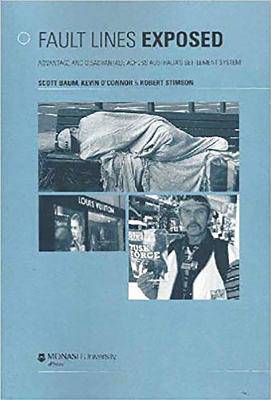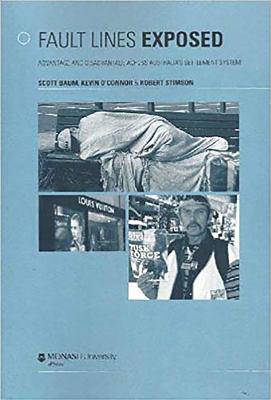
- Afhalen na 1 uur in een winkel met voorraad
- Gratis thuislevering in België vanaf € 30
- Ruim aanbod met 7 miljoen producten
- Afhalen na 1 uur in een winkel met voorraad
- Gratis thuislevering in België vanaf € 30
- Ruim aanbod met 7 miljoen producten
Zoeken
Fault Lines Exposed
Advantage and Disadvantage Across Australia's Settlement System
Scott Baum, Kevin O'Connor, Robert Stimson
Paperback | Engels
€ 67,95
+ 135 punten
Omschrijving
Fault Lines Exposed intends to understand inequality across Australian cities and towns. Social and economic change in Australia has resulted in the emergence of disparities in advantage and disadvantage between metropolitan communities and regional localities, towns and cities. In 1999 the book Community Opportunity and Vulnerability (Baum et al.) considered the disparities that existed between communities using 1996 census data. This new book, available both online and in print, uses up-to-date data to reanalyse the patterns and consider the important policy issues that arise from the patterns identified. Fault Lines Exposed provides insight into advantage and disadvantage at an aggregate community or locality level. Such insight is necessary to better understand what is happening in society. It helps in the planning of effective solutions to problems that impact not only on individuals and families but also on communities. Each of the chapters outlines the main findings from the typology of advantage and disadvantage. The book concludes with a strong policy orientation, addressing possible options and raising more policy questions. Fault Lines Exposed will be essential reading for academics, researchers, students, policy makers and other professionals working in the areas of geography, sociology, economics and social work.
Specificaties
Betrokkenen
- Auteur(s):
- Uitgeverij:
Inhoud
- Aantal bladzijden:
- 216
- Taal:
- Engels
Eigenschappen
- Productcode (EAN):
- 9780975747544
- Verschijningsdatum:
- 1/11/2005
- Uitvoering:
- Paperback
- Formaat:
- Trade paperback (VS)
- Gewicht:
- 368 g

Alleen bij Standaard Boekhandel
+ 135 punten op je klantenkaart van Standaard Boekhandel
Beoordelingen
We publiceren alleen reviews die voldoen aan de voorwaarden voor reviews. Bekijk onze voorwaarden voor reviews.











